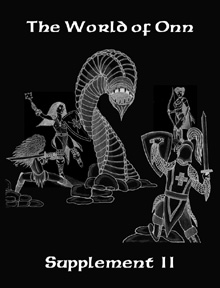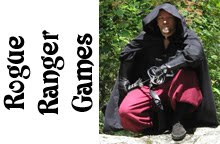Sometimes you can have too much time on your hands to think but never enough to do anything with it. I've been commuting 2 hours back and forth to work in Virginia the last 5 weeks and during that drive and sitting in traffic alot of great (in my mind) things have come out, but since I'm driving no real way to capture the details (something about the police around the Baltimore/DC frowns on out of state people doing things besides just driving, I dunno).
Anyways, everyone that knows me knows I have this love for the red-head stepchild d12. Using Onn's Ability Score adjustments of +/-2, you have more leeway for adjusting the results of a d12 then a d6 when making some kind of dungeoneering skill check. For those frowning now and about to think 'oldschool D&D' didn't have such things and this new school crap doesn't have a place in D&D or its clones, I'll simply say generally in the B/X and OD&D rules, most things had a flat 2-in-6 chance of success (with some Referees houseruling ability adjustments can affect this) and even Gary and Dave and other founding greats used ability checks and other systems to determine success of certain things considered 'skills'.
But enough of digression, if you're still reading you want me to get to the crunchy bits of the post. So I made Onn's 'Dungeoneering Skills' a d12 when I wrote the Core Rules. With the small modifiers ability scores have and the chances to do things (converted directly from the x-in-6 chance) it worked well as a flat system, but offers little room for growth for characters well-practiced (after levels and levels of doing them).
Early D&D and its clones and retro-games are all based around percentages, even if 'funky' dice are used. 2-in-6 = 33%, elves and their 4-in-6 chance to detect secret doors = 66%, heck even hobbits had a high percentage chance (depending on the version of the game, as high as 90%) to remain unseen outdoors. Since D&D-type games are class and level based, organic growth like a skills-based game dont work very well hand in hand normally. I've seen some houserules for combat and magic that severed the ties to class and level that looks very fun and dynamic.
One thing I thought up while I was driving back and forth was a percentage-based skills system. This is thoroughly untested (so far) but a short discussion with my home gaming group refined what was in my head to this:
1) Characters begin play with a base of 8% + the skill's relevant Ability Score.
Example: if a character has an Intelligence score of 13, his ability to Pick Locks would be 21% (8+13) at 1st level.
- Races and classes that have any bonuses to skills would multiply the bonus by 4 and add the result to their base chance of success.
2) During the course of a game session, the players keep track of successful relevant uses of their skills (dictated by the Referee). At the end of the session, the player rolls a check for each skill he used, adding +1% for each relevant use to his chance of success, but subtracting each level attained. If the check is a success, the player adds +1% to his chance of success.
Example: Our lock picking character has 6 successful attempts under his belt the Referee allowed him to record. At the end of the session, he rolls a Lock Picking check against a 27% chance of success (base 21+6). If successful, his base chance rises from 21% to 22%.
3) When a character attains levels beyond 1st level, he gains (3+Int adj) x 5 percentage points at each level. The points can be distributed as the player sees fit, but no more than 5% can be added to a skill at each level.
Example: Our character with the 13 Intelligence has a +1 adjustment. On attaining 2nd level, he gains 20 points ((3+1)x5) to distribute among his skills. He decides lock picking has been a useful skill so he allocates 5% to it, raising it up from a 22% to a 27%.
Using percentages allows the Referee more latitude in assessing bonuses and penalties and allows for some more organic growth without breaking the bank, so to speak.





No comments:
Post a Comment